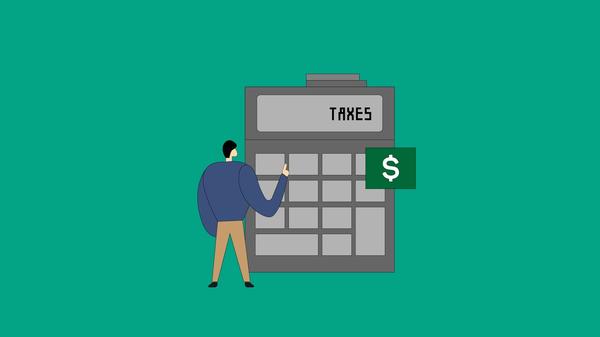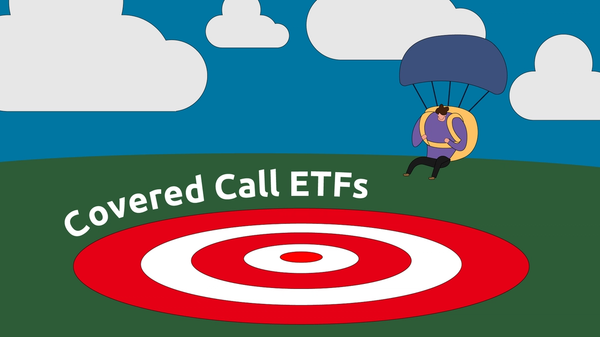This is a guest article by Jin Choi, a new financial advisor with Eddy Wealth.
He has a PhD in financial mathematics and has over a decade of experience helping companies use data to inform their financial decisions.
*The opinions expressed in this article do not represent the opinions of Passiv
I know the title sounds like click-bait.
But a research team from Bernstein, a large asset management firm, had a serious point to make when they published a note titled 'The Silent Road to Serfdom: Why Passive Investing Is Worse Than Marxism.'
The Hypothetical Nation of ‘Potatoland’
Let me use a hypothetical example to explain their view. Suppose there was a country named 'Potatoland' with just two publicly traded stocks:
- Stock A consistently generated profits of $100 million per year and had a market cap of $1 billion, and;
- Stock B lost $100 million every year, but it inexplicably also commanded a market cap of $1 billion.
If there were active investors in this country, the relative market caps of each company would change quickly. Investors would buy A and dump B, causing the market cap of A to rise while B's spiraled down. But all of the investors in this country are passive; they all buy ETFs that allocate to stocks in proportion to their market caps. With no one to force a distinction between the stocks, the companies' market caps stay the same - for now.
But it gets worse.
Company A's management is not happy. They've been hitting it out of the park, but the markets don't seem to care. They decide to use all of their previous year's profits ($100 million) to buy back their own stock at prevailing prices. Doing so causes the share count to go down such that their market cap drops to $900 million.
Company B's management, on the other hand, is nervous. They have a $100 million hole to fill. They decide to raise money by issuing new shares at prevailing prices. B's market cap increases to $1.1 billion.
Before these respective corporate actions, passive investors had half of their money in company A and the other half in B, which was already far from ideal. But, after these corporate actions, passive investors would have more money in B than A. Without active managers to correct the dysfunction, the problem would only grow.
What’s That Got to do with Communism?
The stock market serves many functions, and a major one is price discovery. Companies with better business prospects should be awarded with higher share prices and market caps to encourage them to grow. Perpetual money losers ought to be priced so low that they can't continue to raise money to prolong the inevitable.
Yet, a world filled solely of passive investors wouldn't be able to fulfill this function. Capital would flow to undeserving companies through mindless mechanics. People often deride communist countries for failing to allocate capital well, but at least they attempt to.
Passive investing doesn't even make the attempt, which caused Bernstein's team to decry it as worse than communism.
The problem with this line of thinking, though, is that we'd never realistically live in a world where all investors are passive. It's akin to asking what would happen if everyone invested in index funds or what if everyone in Monaco went outside at the same time - there's supposedly not enough space for everyone to stand, but that would never happen, so why worry about it?
The participation of even a few active investors would break the market stasis. Let me illustrate.
How Active Investors Affect Change
Suppose there were now a few active investors in Potatoland who control a total of $1 million, a tiny sum compared to the $2 billion held by passive investors. The active investors decide to buy more of company A, but when they submit the bids, they find few willing sellers. Passive investors neither buy nor sell, meaning they must buy from other active investors.
Even though the size of buy orders is puny compared to the market cap of company A, they can still move the price because the size of sell orders is even punier. Despite controlling a tiny fraction of the markets, active investors have enabled price discovery.
There is no realistic chance that every investor in the world will turn passive. Leave the monetary incentive aside. Research suggests that the majority of active funds underperform the markets after fees. But there will always be those of us - myself included - who believe we can count ourselves among the minority who beat the market consistently. We're driven not only by our desire to make money, but also by our eagerness to test our intellectual mettle.
Some people even argue that the rise of passive investing has made the markets better at price discovery. Quality - not quantity - of active investors determines whether prices settle at sensible levels. Passive investing may have driven out the weaker active managers, elevating the average quality of those remaining. Evidence on this is inconclusive, but most studies say that passive investing at least hasn't hurt price discovery thus far.
Conclusion
Those who attack passive investing often do so because they feel threatened. Nothing less than their livelihood is at stake. But good active managers need not feel anxious - the markets will always present opportunity.
Passive investors, on the other hand, need not feel guilty that they're prodding the economy toward a dystopian future with their dollars. I pursue a more data-driven active approach, but passive is a reasonable approach too. If you believe in passive investing, go for it.
You can read more from Jin Choi at the website www.eddywealth.com


